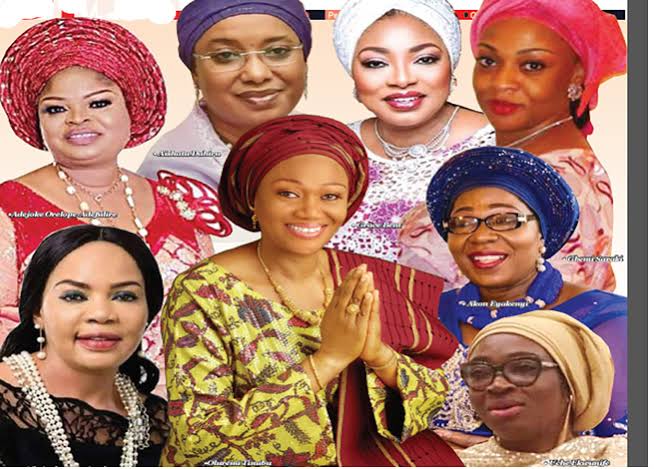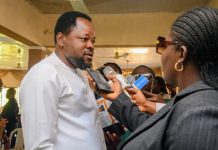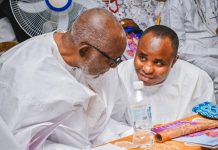
By Bright Gbotemi.
THERE are few women in political and leadership spaces in Nigeria. Currently, in the Senate, out of the 109 senators, three are female, which was a reduction from the seven in the 9th Assembly.
SIMILARLY, in the House of Representatives, sixteen women were sworn in out of the 360 lawmakers, a slight increase compared to 13 in the previous House.
THE female lawmakers are from; Anambra, Bayelsa, Benue, Borno, Delta, Imo, Ogun, Plateau, Lagos, Yobe and Oyo.
IT is on record that there is no female governor in the whole of 36 states of the nation, and also no female vice president since democracy system of government.
IN the recent 47 Ministerial Nominees of President Bola Tinubu, Nine(9) Women were shortlisted.
WHY ARE WOMEN SO POORLY REPRESENTED IN KEY LEADERSHIP POSITIONS?
THERE are different factors. Some are due to the political party systems and structures we have in place in Nigeria.
FOR instance, the high cost of politics prevent women from standing for positions. Often women don’t have enough money to pay for the mandatory Expression of Interest and Nomination Forms required by political parties to run for positions on their platforms. Election campaign costs are exorbitantly high.
THERE are also societal factors that impede women’s representation in governance.
CULTURAL or religious norms surrounding marriage, the structures that portray women as subordinate to men.
EVEN educated women face obstacles. Gender stereotypes that assign leadership to men, sexual assault, unpaid labour, including child care and housework, placing them at a disadvantage.
THERE is also a lack of political will and effective action from government.
A cross section of the media gives poor coverage to female candidates. It is not the same as the coverage men get. Women candidates are sometimes subjected to gender related electoral violence, threats and hate speech because of the perception that women want to get what is traditionally meant for men.
WHY IS REPRESENTATION OF WOMEN IN NIGERIAN POLITICS IMPORTANT?
DATA has shown that half of the population are women, their participation will create an equilibrium or balance of power between genders and this is a pointer to development in any society. Over the years, There’s a rise in the number of women serving in elected and appointed political position all over the world.
HERE are the top five countries with the highest percentages of women’s political power:
Spain: 66.7%, Finland: 61.1%, Nicaragua: 58.8%, Colombia: 57.9%, Austria: 57.1%
BUT that is not the case for Nigerian women.
THE full and equitable participation of women in governance is essential to building and sustaining strong and vibrant democracies.
WHEN women are not participating in politics, it’s less likely that policies will benefit them.
OSUN State as a Case Study
Study revealed that the low representation of women in politics in Osun State is due to certain socio-cultural factors like violence, discrimination against women, people’s perception of politics as a dirty game and cultural beliefs. It suggests that representation of women in Osun State is low compared to their male counterparts with an indication that sustainability of democracy at the grassroots level is yet to be sustained.
FEW days ago, Governor Ademola Adeleke inaugurated Commissioners who will serve in his cabinet, however only two(2) females made the list of 25 nominees screened by the Osun State House of Assembly. They are Mrs Ayo Awolowo, a former Special Adviser to Former Governor Oyinlola, Mrs Adenike Adeleke, the wife of the late Isiaka Adeleke, who was the first civilian Governor of the State during the aborted Third Republic and the elder brother of Governor Adeleke.
THIS has generated a lot of reactions, criticism from Analysts, Women Activists and the Opposition Party in Osun State.
THEIR question; Where is the place of women in Governor Ademola Adeleke’s Government, Women trooped out enmasse for political activities like campaigns but get nothing out of the outcome at the end of the day.
HOW CAN THE PROBLEM OF REPRESENTATION BE SOLVED?
TRAINING is very vital; Women need training in the fundamentals of politics. They need to understand grassroot politics and start from there. When people are unknown at the grassroots, they don’t go far in politics.
WOMEN also need to see that politics is not all dirty. They need to see governance as what affects everyone in a society.
FINANCIAL support is important. Some women can’t afford to buy party forms. And when payment for forms is waived for women, they are often made to step down for the man who has paid. Women need financial support that will not impede on their rights to participate or contest for positions.
THE media must change their narratives towards political coverage for women. They sometimes project women in ways that are not relevant to leadership, politics or election. There are instances where election violence has badly and specifically affected women. The media have to report these and hold perpetrators accountable.
ADVOCATING for affirmative action at the state and political party level is also crucial. Political parties have over the years mandated women to step down from the electoral process.
©Bright Gbotemi, from Voice For Good Governance And Democracy.
Views expressed by contributors are strictly personal and not of Precision Online Newspaper.















